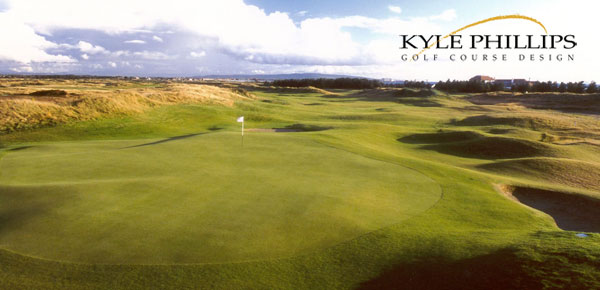
Dundonald Golf Links on the west coast of Scotland sits amongst some of the finest links in the country, including Royal Troon, Turnberry and Prestwick. Not only does it provide great golf but it achieves this with a very low impact on the environment, having achieved zero waste to landfill status. This means that all of their waste is either re-used or recycled and they do their utmost to reduce the amount of waste they produce in the first instance. Local waste management contractors uplift the waste that cannot be dealt with on site for recycling, which includes ‘difficult’ waste such as tyres, batteries and oil. This notable achievement, possibly unique in the golfing world, is far from the end of Dundonald’s effort to enrich the environment:
- they have instigated energy efficiency measures in the clubhouse and greenkeeping facility
- they carefully time course maintenance practices so as not to disturb wildlife, e.g. cutting rough outside the skylark breeding season
- they enhance biodiversity through sensitive habitat creation, e.g. water features, open rough and wild flower areas for pollinators
- they encourage wildlife by leaving wood piles for insects, building a soil wall for martins and installing bee hives.
Future evolution of this philosophy includes looking to self-sufficiency for the clubhouse in terms of its vegetable supply, with much of the rest of their menu being locally sourced.
Over the last 6 years, the driving force behind this incredible programme has been greenkeeper, Amanda Dorens. “It wasn’t easy getting this off the ground, but once everyone agreed with the philosophy the actual practical work soon became second nature”, she explained and added “it really is a massive team effort!”
They do not work in isolation either. Sitting next door is a Wildlife Reserve managed by the Scottish Wildlife Trust. Gill Smart, of the SWT, commented “Dundonald Links is a good neighbour to have next to our Gailes Marsh Wildlife Reserve. It’s extensive out-of-play areas provide continuity of natural habitat across this increasingly fragmented landscape. The butterflies, bees and other wild creatures that breed in either area have the opportunity to disperse into similar habitats on the other, making for more sustainable populations overall. The Scottish Wildlife Trust is looking forward to exploring more ways of working in partnership with Dundonald Links to benefit the wildlife of the Ayrshire coast.” Further collaboration has seen the development of a nature trail for use by groups of visiting children from local schools – a great way to learn about their natural environment.
All of this has taken investment, mostly in time but also with some financial pump priming, but Dundonald is beginning to see real payback in terms of cost savings across the board which are more than making up for the initial outlay. Guy Redford, Dundonald’s Director of Golf, is committed to the sustainable business practices that have been established, “it is right for the environment, for our local community and it makes real business sense”, he concluded.
Source: Randa.org



